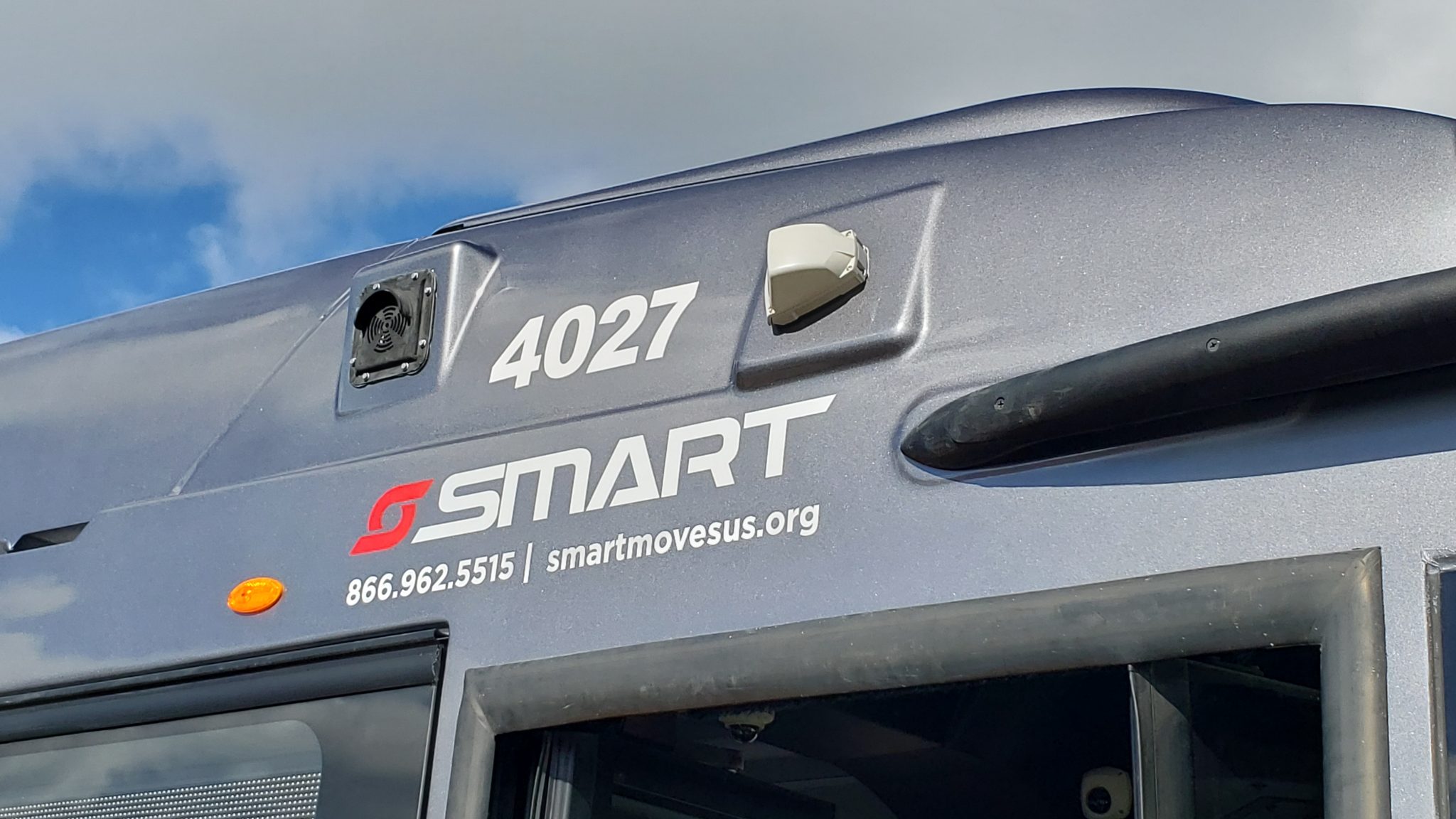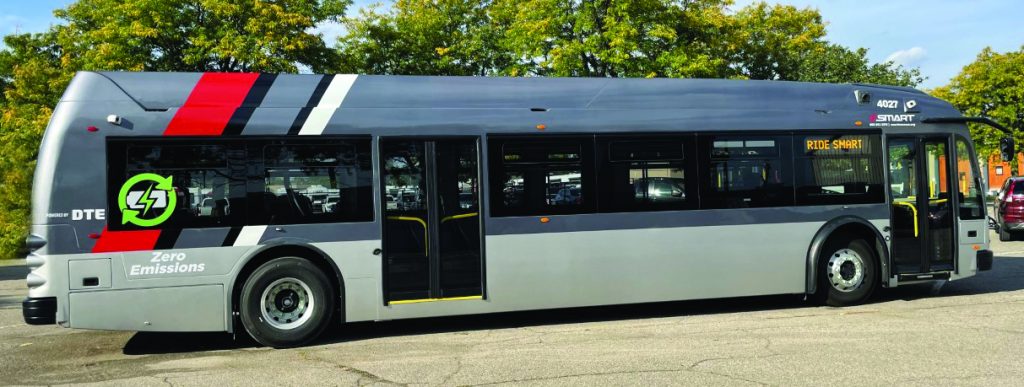Oakland County voters will decide fate of public transportation millage
Residents in Oakland County will decide a county-wide opt-in for SMART bus services when they head to the polls November 8.

A photo of a SMART bus.
Residents in Oakland, Wayne and Macomb counties will decide on transit items when they head to the polls on Tuesday.
Macomb and Wayne County already participate in county-wide transit programs, which millage “yes” votes would continue. But for Oakland County, which does not currently have full access to SMART, it’s a chance for residents to opt in.
Oakland County Executive Dave Coulter says communities in his region have been able to opt in or out of transit services.
“Right now, Oakland County has…what I would call, Swiss cheese approach to transportation in our SMART services,” says Coulter.
As a result, residents in southwest, northwest and certain areas of southeast Oakland County do not currently have access to public buses. Coulter says that would change if the millage is adopted — expanding SMART services to the entire county.
He says a “yes” vote would also benefit those smaller entities like the North and West Oakland Transportation Authorities, as well as the Older Persons’ Commission. Those programs provide services to senior citizens, low-income residents and people with disabilities.
Advocates say Oakland County would be easier to navigate for bus riders
Advocates for the millage say a unified approach to transit would make Oakland County easier to navigate for those who use the public service. With some areas currently opted-out of SMART, buses are not allowed to stop within the boundary lines of those cities.
Lukas Lesecki is a community college student from Farmington who takes the bus to class. Speaking at a recent roundtable event, he says that gap in service creates problems for him if he’s trying to go somewhere like Novi City Hall.
“Since Novi has opted out, it ends where Farmington Hills ends, so that was a nice three-mile walk,” Lesecki shared.
While that isn’t a daily occurrence for Lesecki, it is for some passengers he meets on the bus.
“There are a lot of people who work at Twelve Oaks Mall, and the shopping areas around 12 Mile and Novi Road, who go through that same commute every day,” says Lesecki.
Opposition says current system works fine
Those who oppose Oakland County’s transit millage are critical of the fact that it would eliminate the ability for individual communities to opt-out. That includes people like Oakland County Commissioner Bob Hoffman, who represents an area that covers Holly and Groveland.
He voiced displeasure with the millage during the same roundtable event. Hoffman was also critical of what he calls a lack of planning in Oakland County for if the millage fails, saying he feels the current system works fine.
The Milford Township board also opposes the millage, voting unanimously against putting the item on the November ballot.
The cost to Oakland County taxpayers
The Oakland County Public Transportation Millage asks residents to pay 95 cents per $1,000 of taxable property value to fund the SMART service. The county claims that would cost the average household about $9 per month.
For residents in areas currently opted out of SMART, that’s a new cost. But for everyone else, it would be a slight reduction on what they currently pay for the service.
SMART general manager Dwight Ferrell says beyond the county tax, approving the millage would unlock additional money for the transportation system.

“For every $1 that we get in local tax money, we get $1.34 in state and federal funding,” Ferrell says.
Ferrell states the funding would help SMART operate and maintain its fleet, as well as explore options for future alternative energy buses. If adopted by Oakland County voters, officials estimate SMART could receive about $66 million in the first year.
The millage would be in place for a 10-year period, running through the end of 2031.
Trusted, accurate, up-to-date.
WDET strives to make our journalism accessible to everyone. As a public media institution, we maintain our journalistic integrity through independent support from readers like you. If you value WDET as your source of news, music and conversation, please make a gift today.

